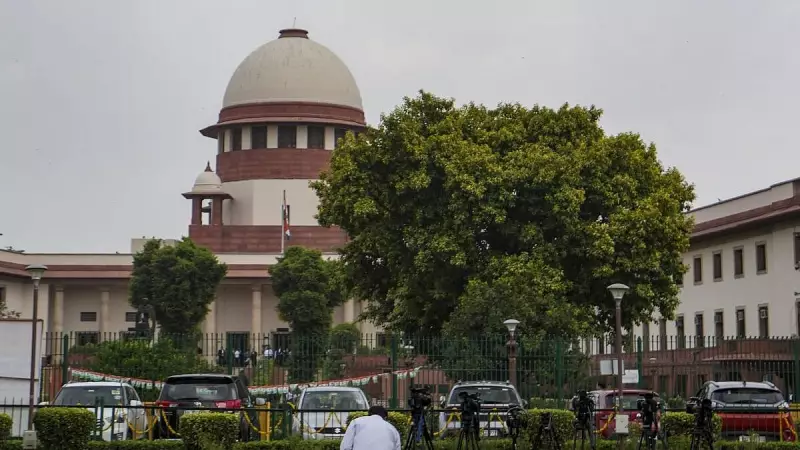
In a significant development that underscores the judiciary's firm stance on national security, the Supreme Court of India has refused to consider the bail application of a man accused of promoting ISIS ideology. The decision came just one day after the explosive incident in Delhi, sending a clear message about the seriousness of such offenses.
Court's Strong Stance on National Security
The bench comprising Justices Vikram Nath and Sandeep Mehta heard the matter on November 11, 2025, and delivered a powerful statement that resonated through the legal community. Justice Vikram Nath explicitly stated, 'It is the best morning to send a message,' emphasizing the timing of their decision following the recent security threat in the national capital.
The court's refusal to entertain the bail plea demonstrates the judiciary's heightened sensitivity to matters concerning national security, particularly when they involve alleged connections with international terrorist organizations. This decision assumes greater significance given the context of the previous day's events in Delhi.
Timing and Context of the Decision
The Supreme Court's hearing took place against the backdrop of heightened security concerns across the country. The Delhi blast incident that occurred on November 10, 2025, created an environment where the judiciary felt compelled to take a stronger position on cases related to terrorist ideology and activities.
Legal experts view this decision as a strategic move by the apex court to demonstrate that the Indian judicial system will not show leniency toward individuals accused of promoting extremist ideologies, especially during times of increased security threats. The bench's explicit mention of sending a message indicates their awareness of the broader implications of their decision beyond the individual case.
Legal Implications and Future Proceedings
The accused individual, whose identity remains protected in initial reports, now faces continued detention as his bail plea remains unconsidered. This development suggests that the lower courts will need to be particularly cautious when dealing with similar cases in the foreseeable future.
The Supreme Court's position establishes an important precedent for how the Indian legal system handles cases involving alleged promotion of terrorist ideologies. Legal analysts predict that this decision will influence how bail applications are treated in cases with national security dimensions, particularly those involving international terrorist organizations like ISIS.
As the investigation into both the Delhi blast and the accused individual's activities continues, the Supreme Court's firm stance serves as a reminder of the judiciary's role in maintaining national security while upholding legal principles.





